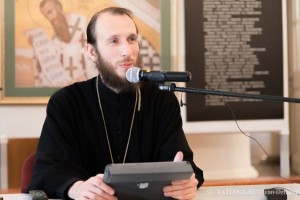A comprehensive guide to social media has been issued to clergy and staff of the Church of England.
Drawn up by the Bath and Wells diocese, it comprises of nine commandments, which give guidance on how to spread the Christian message online.
Would I want God to read this? And what would my mother think? Are among the scenarios tweeters are asked to consider before putting finger to keyboard.
The church adds: “Social media is immediate, interactive, conversational and open-ended. This sets it apart from other forms of communication and demands a new way of thinking. As well as the many opportunities, users should also be aware of (though not put off by) the associated risks.
“Essentially, you should participate online in the same way as you would in any other public forums. Your actions should be consistent with your work and Christian values and you take responsibility for the things you do, say or write.
Source: The Huffington Post UK
Below we reproduce the full text of Social media guidelines.
Social media guidelines
Within our diocesan community, more and more people are using social media as part of their ministry. The Diocese of Bath & Wells and the wider Church embraces this, acknowledging the value of social media as an important missional tool. Through social media we can connect with people where they are and build relationships with those we might struggle to reach through other channels.
Social media is immediate, interactive, conversational and open-ended. This sets it apart from other forms of communication and demands a new way of thinking. As well as the many opportunities, users should also be aware of (though not put off by) the associated risks.
These good practice guidelines have been compiled to help clergy, office-holders and staff already active on social media (or thinking about it!) fulfil, with confidence, their role as online ambassadors for their local parish, the wider Church and our Christian faith.
All are based on principles of common sense and good judgement. Essentially, you should participate online in the same way as you would in any other public forum. Your actions should be consistent with your work and Christian values and you are responsible for the things you do, say or write.
1. Don’t rush in
The immediacy of social media is one of its benefits – we can respond quickly to questions, correct misunderstandings, give our perspective about a breaking story in the news media. Responding quickly doesn’t mean doing so without due consideration. Be fore posting always think:
- Is this my story to share?
- Would I want my mum to read this?
- Would I want God to read this?
- Would I want this on the front page of a newspaper?
This point applies even before you start posting your own content. Spend a while listening to others, getting a feel for the tone in that particular forum, giving thought to how you might participate.
2. Transient yet permanent
Social media updates are immediate and will outdate quickly BUT they can have a more lasting impact and you should assume that anything you post is permanent. Even if you delete it later on, it may have been seen and re-published or referred to elsewhere.
3. You’re an ambassador
Like it or not, if you are ordained, lead in or are employed by the Church, others will see you in your public role as a representative of the Church. If talking about a church matter, make it clear that these are your personal opinions and not those of the Church of England or the Diocese.
4. Don’t hide
Anonymity and ‘hiding’ behind aliases when using social media is frowned upon. It’s also at odds with what we consider the main reason for using social media networks. How can anyone really connect with an alias? On any social media platform, if you choose a username or profile different to your real name, include brief personal details in the about section.
When the account is a shared one, for example, a Facebook page for your parish, ensure people can easily find out who is responsible for the content.
5. Blurring of public/private life boundaries
In everyday ministry, the distinction between public duties and private life is difficult to draw. It is no different online. There are risks associated with personal opinions being seen as public statements, a minister’s private life being invaded and the difficulties of detaching from work. Consider setting up different accounts for ministry and personal use to help set definite boundaries. Use privacy settings wisely.
6. Safeguarding
The informality that social media encourages can mean that it might be harder to maintain a professional distance that is required when working with children, young people and the vulnerable. Communicating directly online with someone, for example with private messaging, is like meeting them in private. You’re advised to send messages to groups, rather than individuals, or share them publicly.
Refer to the Diocesan Safeguarding Policy for further guidance and information.
7. Stay within the legal framework
Whilst sharing thoughts and reflections with friends or followers via social media can seem personal and private, it is not. By law, if one or more people can access it, content is classed as published, in the public domain and subject to legislation around libel, defamation, copyright and data protection. If you wouldn’t say something in a public meeting or to someone’s face or write it in a newspaper or on headed paper – don’t say it online.
Be aware that the Code of Conduct for Pastoral Ministry, the Clergy Discipline Measure and standards and policies stipulated in the Diocesan Staff Handbook also apply.
8. Confidentiality
Use of social media does not change the Church’s understanding of confidentiality. Within the life of the Church there are private meetings and conversations, particularly in terms of pastoral work. Breaking confidentiality is as wrong as it would be in any other context. Arguably, it is worse as via social media a broken confidence could spread rapidly and be impossible to retract. Remember: Is this story mine to share? If in doubt, don’t.
9. Be mindful of your own security
Don’t overshare personal information. Never publish detailed personal information such as your address or telephone number, unless in a private message to someone you know and trust.




















